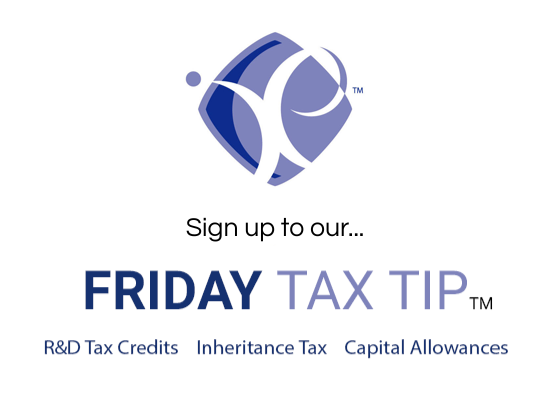HMRC is stepping up its fight against tax evasion in a bold new way.
Later this year, a reward scheme will be introduced to pay whistleblowers who report serious tax fraud.
Inspired by successful models internationally, this move is expected to shake up how tax evaders are uncovered in the UK.

(Read Time: Approx. 4 minutes)
Topics Discussed:
- Why the UK’s tax fraud problem demands new solutions
- What the whistleblower reward scheme involves and how it compares to US and Canadian models
The Scale of the UK’s Tax Gap
In its latest data for 2022/23, HMRC estimated the UK tax gap to be £39.8 billion. This represents 4.8% of the total tax that should have been collected.
A large portion of this loss is attributed to tax evasion, non-compliance, and deliberate underreporting.
In cases involving large corporates and wealthy individuals, offshore accounts and complex financial structures often make detection and enforcement difficult.
To respond to this challenge, the government has introduced a series of legislative and procedural reforms, with a particular focus on corporate accountability and whistleblower involvement.
Failure to Prevent Fraud
One of the most critical developments is the creation of a new criminal offence under the Economic Crime and Corporate Transparency Act 2023 (ECCTA).
This law, specifically Section 199, introduces the offence of ‘failure to prevent fraud’.
It applies to large organisations and makes them criminally liable if a person associated with the company commits fraud and the organisation did not have reasonable prevention procedures in place at the time.
The offence comes into force on 1 September 2025, allowing businesses a limited window to update or implement suitable safeguards.
The ECCTA guidance outlines six core principles to help companies design fraud prevention systems that are proportionate to their size and risk profile.
These include:
- Top-Level Commitment: Senior management must take visible responsibility for anti-fraud measures.
- Risk Assessment: Businesses should continuously evaluate internal risks using structured metrics such as opportunity, motivation, and rationalisation.
- Proportionate Procedures: Identified risks must be met with tailored policies, which may include checks on financial incentives and internal controls.
- Due Diligence: Both employees and external partners should be subject to appropriate vetting.
- Effective Communication and Training: Staff must be fully aware of anti-fraud policies through ongoing education and accessible reporting channels.
- Monitoring and Review: Procedures should evolve to meet emerging risks and regulatory changes.
Failure to follow these principles may leave companies exposed to criminal liability, particularly if they are later implicated in fraud investigations.
Why the Current Whistleblower Model Was Not Working
Until now, HMRC’s approach to whistleblowing has been underwhelming.
Though the public could report tax non-compliance, any financial reward was entirely discretionary and usually minimal.
In 2023/24, total payments to informants amounted to just under £1 million.
This lack of a clear, incentivised framework has resulted in missed opportunities.
UK nationals aware of tax fraud often chose to report it to the US Internal Revenue Service (IRS), where they could receive a guaranteed percentage of recovered tax, typically between 15% and 30%.
Nick Ephgrave, Director of the Serious Fraud Office (SFO), highlighted this issue and revealed that since 2012, over 700 UK citizens have opted to blow the whistle in America instead of at home.
The rationale was simple: better rewards and clearer protections.
New Landlords: What to Know
Later this year, HMRC will introduce a structured reward scheme similar to those in the US and Canada.
The goal is to encourage insiders to report serious tax evasion by offering a share of the recovered tax revenue.
- Whistleblowers may receive between 5% and 30% of the additional tax recovered by HMRC.
- The scheme will focus on serious non-compliance, especially involving offshore structures and high-value avoidance schemes.
- Informants can expect financial rewards proportional to the success of the enforcement action.
- The scheme is expected to protect whistleblowers’ identities and shield them from retaliation.
This move forms part of a broader government strategy to take a more commercial and results-driven approach to enforcement.
By aligning public interest with personal incentives, HMRC aims to tap into a valuable stream of intelligence that might otherwise remain hidden.
Comparison to US and Canadian Models
The US model, run by the IRS, has long been recognised for its effectiveness.
In the 2022 to 2023 fiscal year alone, the IRS paid $88.8 million in rewards to whistleblowers, recovering $338 million in taxes as a result.
The process requires informants to provide credible and specific evidence. Once approved, payments are automatic and significant.
Canada operates a similar programme.
The Canada Revenue Agency (CRA) pays informants between 5% and 15% of additional tax collected, provided the recovery exceeds CAD $100,000.
Strict confidentiality rules help protect whistleblowers and encourage participation.
The UK scheme will borrow key elements from both of these systems, making it more attractive to potential whistleblowers and far more effective than the old discretionary process.
Wider Implications for Businesses
The new reward scheme is likely to have several downstream effects:
- Increased Reporting: With better rewards on offer, more employees, contractors and financial professionals may come forward with reports.
- Greater Scrutiny: HMRC will likely invest in teams to assess incoming tips, leading to more investigations and audits.
- Corporate Tensions: Employers may experience a rise in internal scrutiny and possibly strained relationships, especially where whistleblowing involves colleagues or clients.
- Need for Enhanced Compliance: Businesses must act now to ensure their fraud prevention and whistleblowing procedures are not only robust but also well-documented and consistently implemented.
For large organisations already navigating the requirements of the ECCTA, this is yet another reason to ensure that governance and compliance procedures are up to standard.
Summary
The introduction of HMRC’s new whistleblower reward scheme represents a pivotal moment in the UK’s fight against tax fraud.
With £39.8 billion lost annually, the government is turning to proven international models that use financial incentives to encourage the reporting of tax evasion.
This change arrives in tandem with stricter corporate fraud laws and increased focus on compliance. Businesses should not delay in reviewing their internal systems, training programmes, and whistleblower protections.
If you have undeclared tax liabilities or need advice on how to strengthen your fraud prevention measures, get in touch with us at Tax Expert today.
Fill out our form here for any questions, email us at info@taxexpert.co.uk, or message us on our WhatsApp for out of office hours.
Kind regards,
Ilyas Patel

